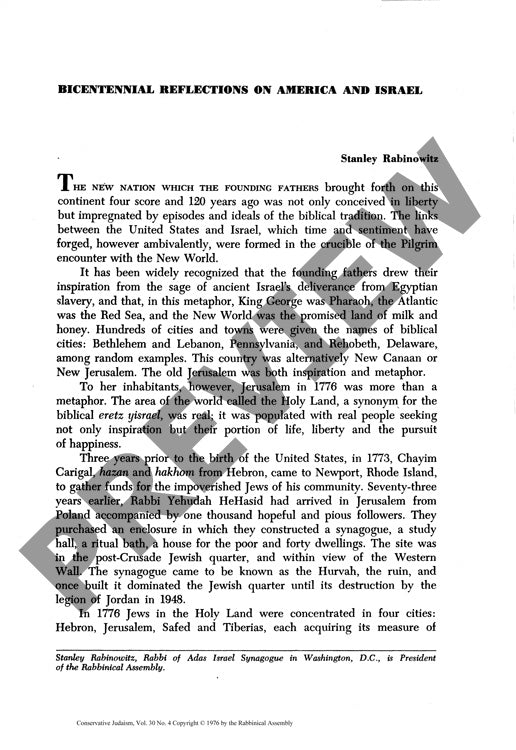Bicentennial Reflections on America And
Couldn't load pickup availability
America's enduring alliance with Israel extends far deeper than modern diplomatic ties, reaching back to the earliest days of American independence when biblical metaphors helped shape the new nation's identity. From 1776 through 1976, American engagement with the Holy Land evolved through distinct phases: initial religious and commercial contacts, systematic exploration and missionary work, and eventually strategic political partnership. Drawing on historical analysis and archival sources, this research reveals how American ships entered Mediterranean trade routes while Christian pilgrims sought spiritual connection to sacred sites. Significant milestones include Lieutenant William Lynch's groundbreaking 1848 Dead Sea mapping expedition, the establishment of America's first Jerusalem consulate under Warder Cresson in 1844, and several ambitious though ultimately unsuccessful agricultural colonies founded by American Christians. While religious conviction and commercial interests dominated early interactions, World War I marked a pivotal shift toward strategic political considerations. The relationship's remarkable durability stems from shared democratic values and parallel struggles for freedom, suggesting that modern American support for Israel represents both a fulfillment of founding biblical inspirations and a continuation of America's foundational commitment to liberty. This historical analysis illuminates the complex origins of contemporary American-Israeli relations beyond conventional diplomatic narratives.

More Information
-
Physical Description
-
Publication Information
Published
ISBN
-
Publication Credits
Stanley Rabinowitz

